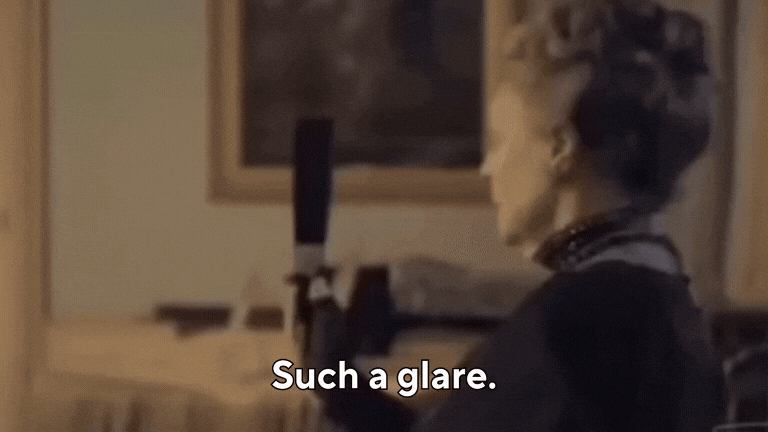What my ADHD taught me about self-compassion
"If your compassion does not include yourself, it's incomplete." 🫶
If you have ADHD, I’m sure you probably received a fair amount of criticism as a child. I’m sure, because experts estimate that children with ADHD “could receive 20,000 negative or corrective comments by age 10.”
And if you’re a late-diagnosed ADHDer (like me), I’m sure that criticism spanned decades past childhood.
Since we don’t live in a society that is neurodiversity-affirming, we’re forced to adhere to a system that works directly against our neurology. And as women with ADHD, we’re also subjected to a system that not only contradicts our neurological wiring, but also contradicts our hormonal wiring (but that’s a rant discussion for a separate post).
The way our society is structured doesn't just suppress our strengths, it highlights our differences. It’s as if someone came in and flipped on a bright overhead light just to expose us. (The girlies with sensory issues get it.)
The result? You guessed it! Criticism. And not the “constructive” kind. Instead, the criticism we receive promotes the narrow-minded viewpoint that we’re “lazy, crazy,” and “just need to try harder.”
This narrative was reinforced to me so many times throughout my life (mostly by teachers and bosses) that I started to believe there was something inherently wrong with me.
Because I thought there was something wrong with me, I became angry — not at the lack of a proper diagnosis, or education on neurodiversity, or basic empathy from others — because I didn’t know enough to be angry at those things back then…
No, I became angry at myself. And the worst part was that my anger was deeply rooted in shame. Again, because I wasn’t able to function in the way that society deemed “appropriate,” I was ashamed of myself, so I blamed myself.
These feelings slowly turned my inner voice into my inner critic, and she was a mean girl. No, really— she would’ve made Regina George look as menacing as Moo Deng.
Somewhere along the way, my inner Regina critic encouraged me to subconsciously develop hypervigilence. I started scanning my environment for “potential threats” (aka: criticism). If there was anything that I perceived could result in criticism, I would try to correct it as quickly as possible before anyone had the chance to criticize me.
This led me to develop more unhealthy coping mechanisms, like masking my ADHD through people-pleasing and perfectionism — all of which eventually activated my “functional freeze” response.
If you’re confused because you thought this was a dating newsletter and not a journel entry on my CPTSD — don’t worry. I’m making a long-winded but important point. But I have ADHD, so a tangent or two is inevitable. 🙃
My lack of a proper diagnosis, and therefore, lack of a proper understanding of myself, negatively impacted every single area of my life — especially my dating life.
The hypervigilance I developed prompted me to scan every single talking stage for “perceived threats.” A small shift in his energy, a delayed text, or *gasp* a period at the end of a sentence was enough to send me spiraling.
Which led to…
People-pleasing and my drive to twist myself out of proportion to correct any criticism a guy might have of me before it even happened.
Which led to….
Perfectionism and my need to project that I was this “perfect girl” who lived the “perfect life.” I felt like I needed to have the perfect job, body, and witty-yet-still-nice-and-classy responses to “win him over.” (Seriously — my notes app drafts are more dramatic than a Nicolas Sparks novel.)
Which led to…
My “functional freeze” response, where I became so depleted and defeated from all of this inner turmoil that I became disconnected from my body. I started searching for quick and easy sources of dopamine to boost my mood and feel something, even if it was to my future detriment. But attention from men was my favorite form of dopamine, so I continued the cycle that further perpetuated my dysregulated state.
All of which led to…
Low self-worth. At one point, my self-worth was so low, I started allowing bare minimum men into my life and would cling to them because I felt like I couldn’t do better.
And then I was diagnosed with ADHD, and the rest is history being documented here, with the genuine hope that my experience might help you better understand how ADHD may be impacting the dating patterns in your life.
Here’s how it ties all together — if you take away anything from this post or my content as a whole, please let it be this:
The criticism I received throughout my life led me to develop the core belief that I “needed to be fixed.” My diagnosis freed me from that belief, and helped me understand that actually, no, I don’t need to be “fixed,” because I’m not broken.
And neither are you.
This realization felt like a weight was lifted from my body. I finally understood and accepted myself as someone who operates differently but just as beautifully as everyone else.
Once I accepted myself, I was able to forgive myself for becoming a hypervigilant people-pleasing perfectionist. I understood that this was my body’s way of trying to survive, because I lacked the knowledge that has now empowered me to thrive.
Then it really hit me: for the first time in decades (and perhaps even in my life), I was showing myself compassion — one of the most important steps in restoring safety in our bodies, healing our nervous systems, and returning to homeostasis.
Practicing self-compassion gave me permission to make Regina stfu silence my inner critic. And without my inner critic yapping, I could make room for my inner cheerleader, who is my ultimate hype girl (and way more talented than I was during my stint as a high school cheerleader — thanks, dyspraxia!).
My inner cheerleader would never allow me to twist myself into a pretzel for a man (only an All-Star competition). In fact, she would never even let me subject myself to men who don’t deserve me, because she finds the idea of entertaining bare minimum men utterly repulsive….
In case you needed one more reason to practice self-compassion, I’ll leave you with this:
One of the many positive aspects of ADHD is our strong sense of social justice — our deep desire to make the world a better place coupled with our empathy and compassion for others. But it’s so important that we also extend that compassion to ourselves. Jack Kornfield, a renowned meditation master, once said: “If your compassion does not include yourself, it’s incomplete.”
We can’t create a better world if we don’t first create a better inner world. Think of it like when an oxygen mask drops down on an airplane. You’re instructed to put the mask on yourself before helping the person next to you. By practicing self-compassion, you’re taking better care of yourself, which will help you take better care of others, and create a positive ripple effect in your community. (And there is perhaps no greater need for airplane safety and community support than right now.)
It’s my to mission to create a better world by advocating for women with ADHD, which hopefully creates a ripple effect that spreads neurodiversity awareness. I want to help cultivate a society that celebrates neurodiversity, instead of criticizing it.
In fact, I feel so passionately about this goal that I dropped out of grad school and enrolled in a program to become a certified ADHD coach. But without self-compassion, (and most importantly, the support of this incredible community of women), I wouldn’t have the self-confidence to do any of this — including writing this post. From the bottom of my heart, thank you for allowing me to turn my passion into my purpose. I can’t wait to continue growing this community.
xx, 💘






Great advice. When I was diagnosed in my early 60’s, so much of my lifelong struggles suddenly made sense. I came to understand that self-compassion was both important and legitimate. Intellectual understanding, though, does not easily overcome a lifetime of self-reproach and compensation. So I have to remind myself that, despite my many efforts to mitigate the problems my ADHD cause for myself, I am still going to do some “stupid” things. Posts like yours help!